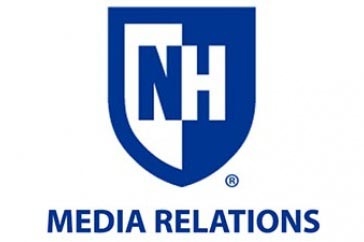UNH Received $260M in New Research Grants and Contracts in FY21

DURHAM, N.H.—The University of New Hampshire broke its record for competitive research funding, closing fiscal year 2021 with more than $260 million in new grants and contracts, double its FY20 record. The funding, from federal agencies, state collaborators, business and industry and private foundations, supports a range of projects that improve life in New Hampshire and beyond.
Among the projects funded:
- Genomic testing of positive cases of COVID-19 to monitor variants of concern in New Hampshire, with $757,000 from the National Institutes of Health;
- The first-ever randomized clinical trial studying the effectiveness of wilderness therapy for teens struggling with mental health and substance use disorders;
- Support for more than 1,000 low-income New Hampshire middle and high school students to overcome barriers to higher education, with $3.2 million from the U.S. Department of Education;
- Research to understand ecosystem and climate interactions, such as the thawing of Arctic permafrost, funded by $3.6 million from the National Science Foundation;
- Nearly $2 million from the National Oceanic and Atmospheric Administration for research to protect critical transportation infrastructure from sea level rise and increased coastal flooding.
“For the second year, our scholars overcame the significant challenges of the pandemic to submit competitive research proposals that fund important work that aims to understand our world and make it a better place,” said Marian McCord, senior vice provost of research, economic engagement and outreach. “I’m proud of them, and the staff that supports them, for generating new opportunities for basic and applied research, extension and economic development.”
The Institute for the Study of Earth, Oceans, and Space (EOS), UNH’s largest research center, received $175.7 million, the largest share of external funding in FY21. The federal government was the largest source of funding, sending $163 million to UNH, led by NASA ($121.2 million), the Department of Health and Human Services ($22.2 million) and the National Science Foundation ($19.6 million).
Expanding competitive funding for research is essential to maintaining the Carnegie Classification R1 status, which puts UNH in the top tier of research universities nationwide.
External grants and awards fund specific research projects and are carefully accounted for through a robust compliance process mandated by grantors. In addition to major scientific instruments and laboratory supplies, a significant share of external funding supports scholarships and salaries for graduate and undergraduate students, postdocs and faculty researchers. The new knowledge generated through research projects improves education by bringing new ideas and theories into the classroom, deepens understanding of our world and beyond, solves local and global challenges and drives economic development.
The University of New Hampshire inspires innovation and transforms lives in our state, nation and world. More than 16,000 students from all 50 states and 71 countries engage with an award-winning faculty in top-ranked programs in business, engineering, law, health and human services, liberal arts and the sciences across more than 200 programs of study. As one of the nation’s highest-performing research universities, UNH partners with NASA, NOAA, NSF and NIH, and receives more than $110 million in competitive external funding every year to further explore and define the frontiers of land, sea and space.
Latest News
-
October 8, 2025
-
October 2, 2025
-
September 24, 2025
-
September 15, 2025
-
August 21, 2025















































